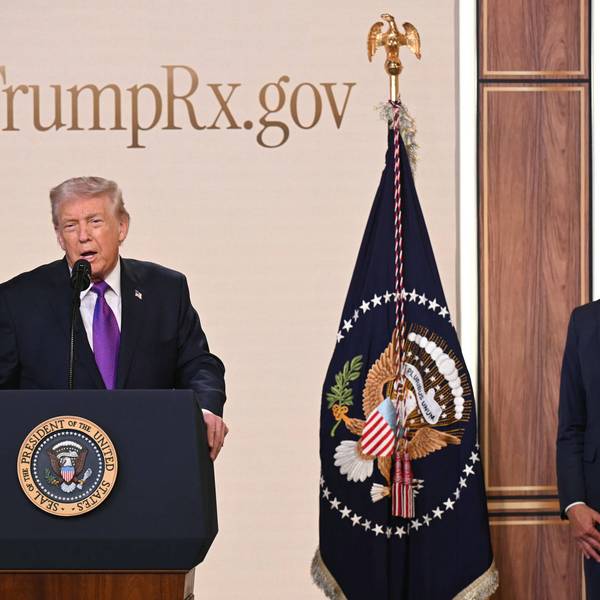Doctors Without Borders and more than fifty other public health organizations sent a letter to Congress on Tuesday calling on lawmakers to reject the pending Trans Pacific Partnership (TPP), warning that it will "expand the monopoly power" of Big Pharma and dangerously limit access to affordable medicine for millions worldwide.
In its current form, the TPP includes provisions that "allow pharmaceutical companies to intervene in public policy deliberations on drug pricing" and facilitate "abuse of the patent system" by extending monopoly protections and exclusivity periods, the letter (pdf) reads, hampering the introduction of affordable generic drugs.
"By expanding the monopoly power of pharmaceutical companies," it argues, "TPP provisions would restrict generic competition and thereby enable medicine prices to keep spiraling out of reach--locking in a broken system here at home and exporting that system to the eleven other TPP countries and those that may join later, including lower-income developing countries where public resources are limited and most people pay for medicines out-of-pocket."
Domestically, the trade deal is a "danger to public health and fiscal responsibility," the groups warn. And worldwide the TPP "would significantly restrict generic competition and undermine access to affordable medicines" by dismantling the May 10, 2007 compromise, which limited intellectual property (IP) protections in trade deals.
The signatories, which include Oxfam America, Health GAP, Alliance for Retired Americans, National Nurses United, National Physicians Alliance, and Public Citizen, say that under these terms "the TPP would do more to undermine access to affordable medicines than any previous U.S. trade agreement."
"Competition has consistently proven the most effective means of reducing prices and ensuring process continue to fall over time," the letter continues. "In the U.S., generic medicines have saved $1.5 million in health care costs in the past decade. Internationally, generics have played a critical role in responding to the AIDS epidemic, saving millions of lives."
"The bottom line is that the TPP would undermine public health in the U.S. and overseas," Doctors Without Borders wrote in a blog post on Tuesday.
The trade deal, which was signed in February by the U.S. along with 11 other countries, currently awaits the approval of Congress,which will give it an up or down vote.
Despite mounting pressure from President Barack Obama, lawmakers including Senate Majority Leader Mitch McConnell (R-Ky.) have said that Congress is unlikely to vote on the TPP until after the November elections. Presidential candidates Bernie Sanders, Hillary Clinton, and Donald Trump have all expressed opposition to the deal.



